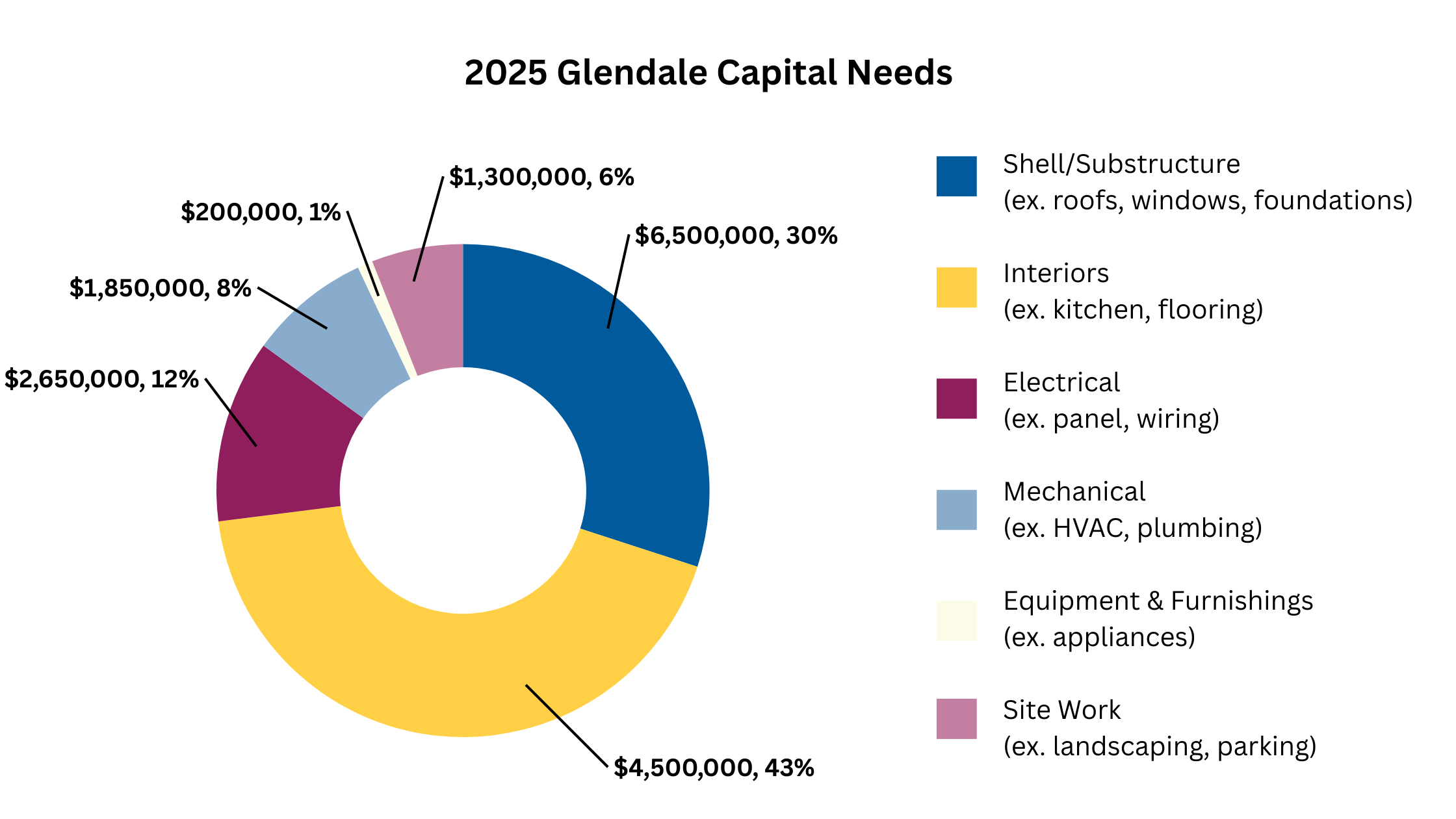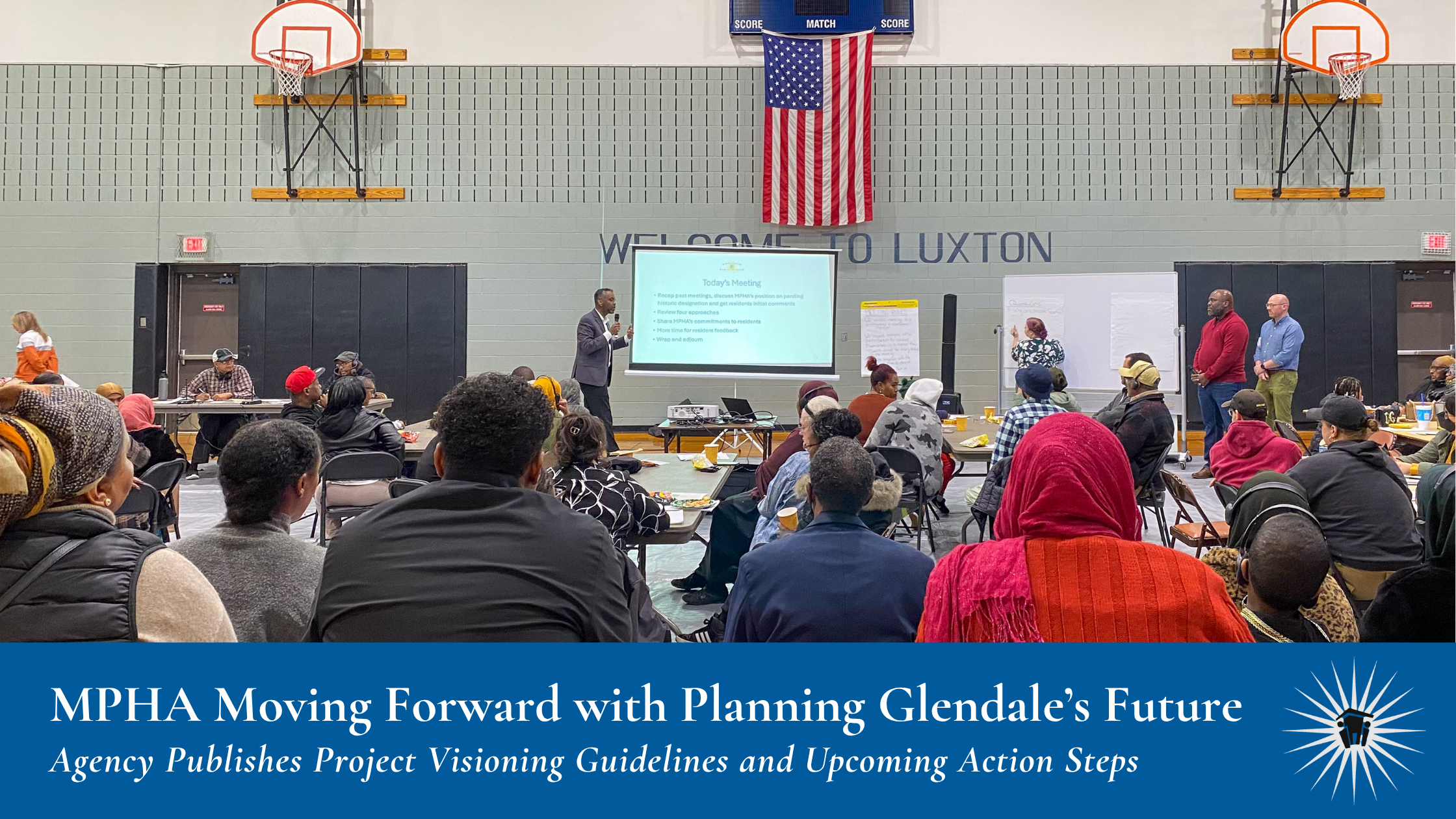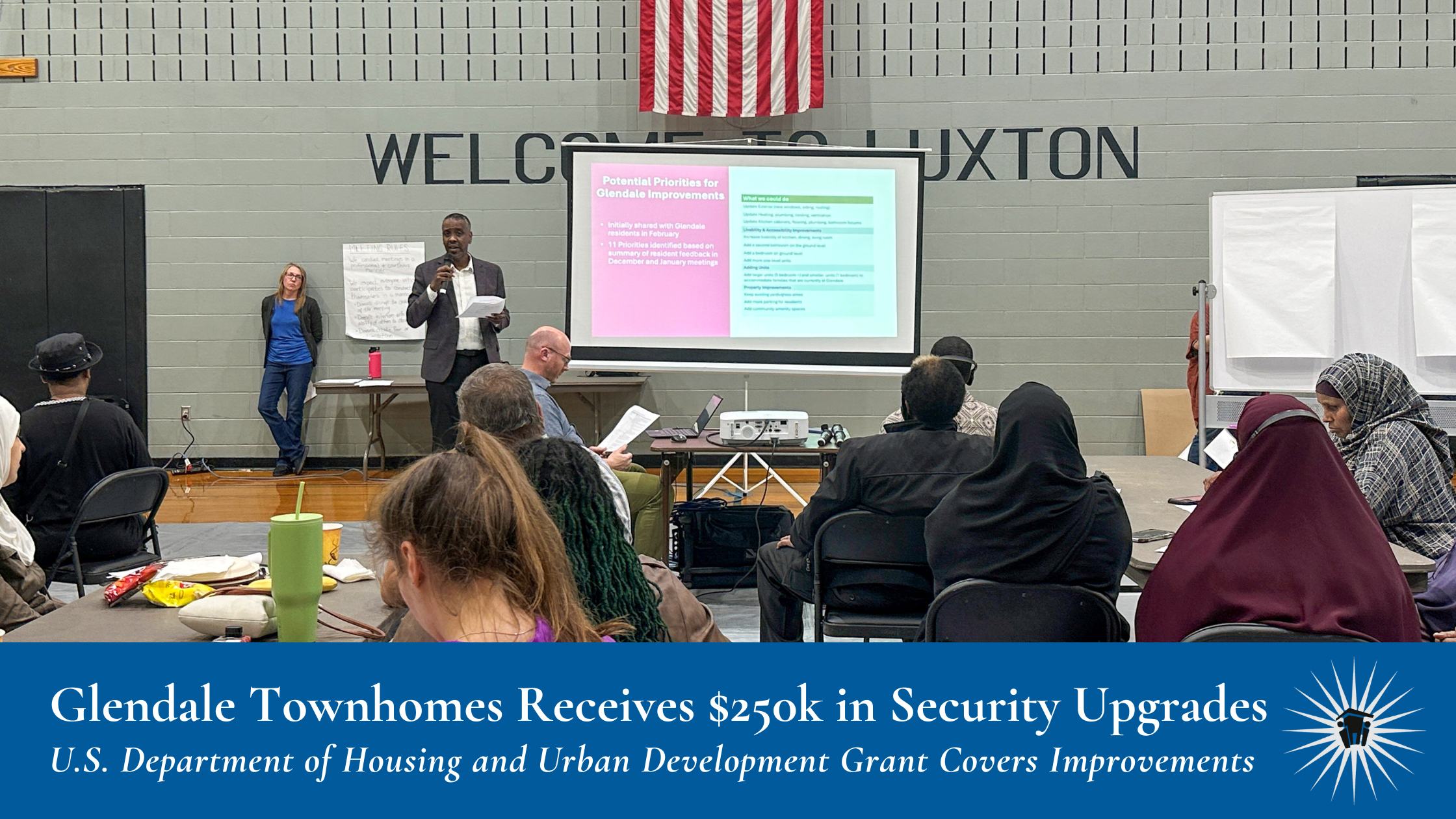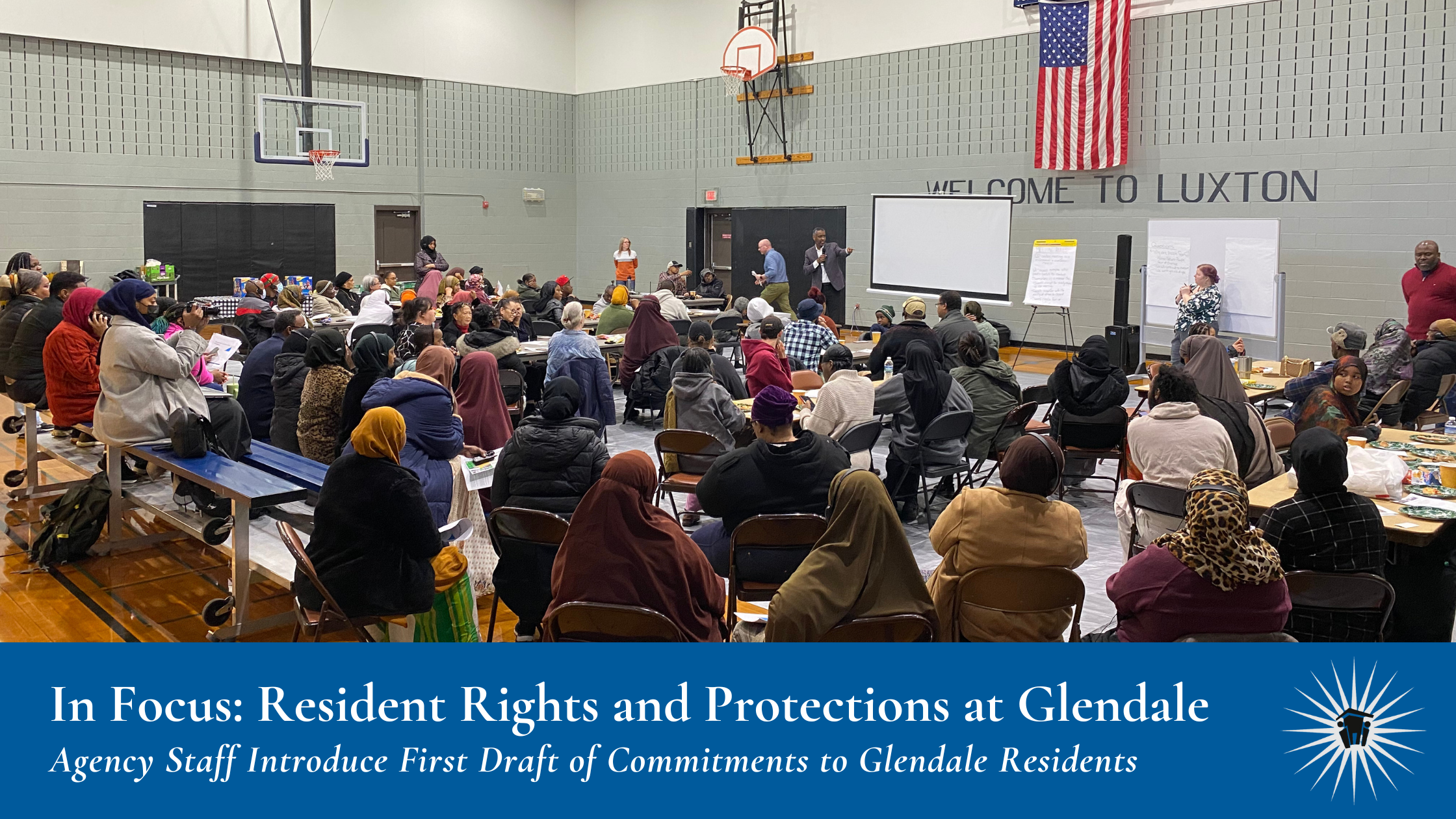Glendale Townhomes
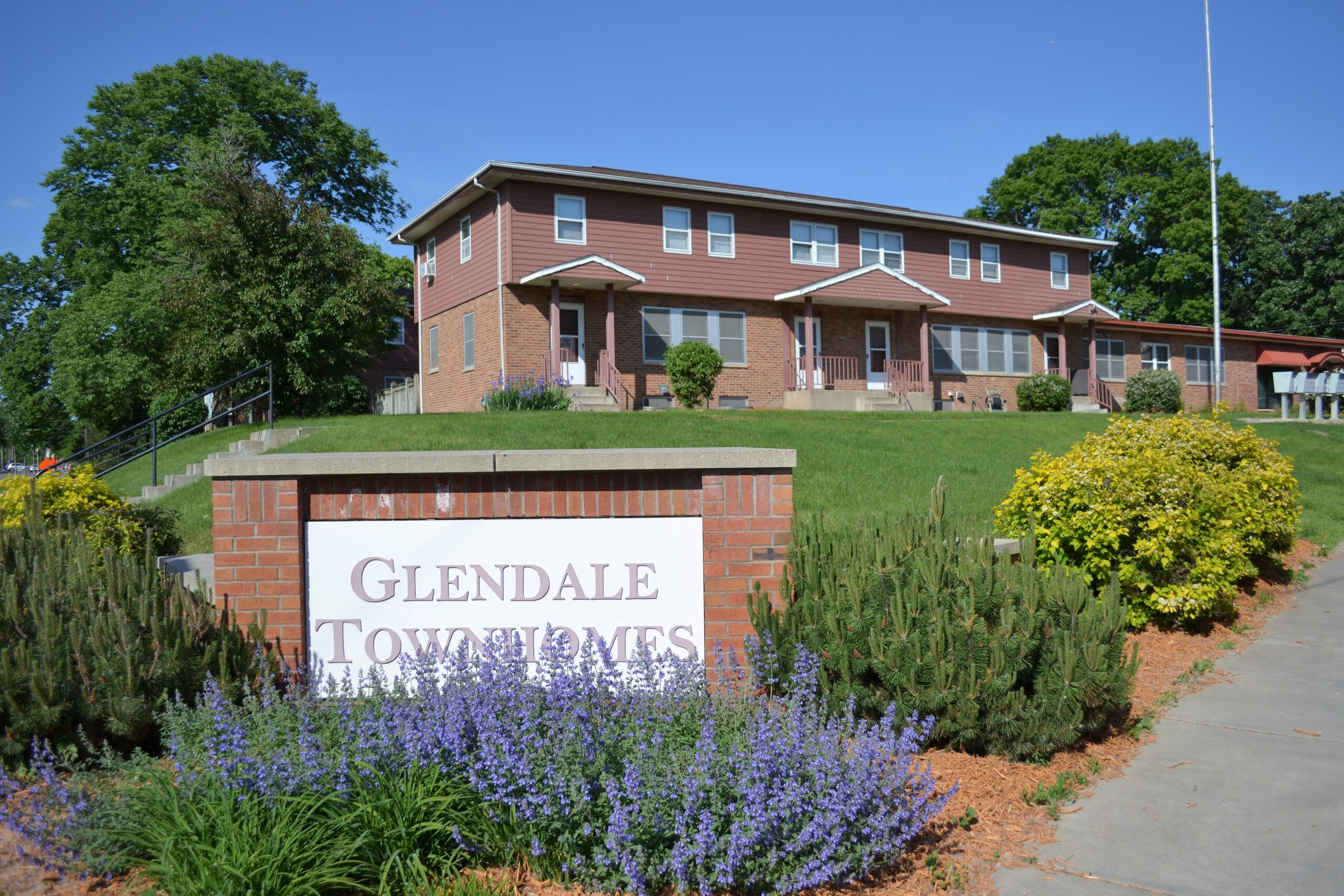
Built in 1952, more than 2,000 families have called Glendale home over the decades. Nestled in the transit-rich Prospect Park neighborhood, Glendale boasts access to an early childhood Head Start program and Luxton Park and its recreation center, along with proximity to the University of Minnesota and its many resources. Through the years, Glendale has become a cultural corridor for many refugee families–from Southeast Asia to East Africa–and recently celebrated its 70th anniversary.
Today, nearly 600 people call Glendale home. Eighty-nine percent of residents are Black/African American, 49 percent are children, 41 percent of households are families of five or more, and nearly 20 percent of households have a family member with a disability. Among heads of household, 67 percent have an earned income, with a median annual income of nearly $31,000.
A Growing Challenge at Glendale
Historically, the U.S. Department of Housing and Urban Development (HUD) has only provided MPHA 10 percent of the annual capital funding the agency needs to maintain its nearly 6,000 units. Following decades of compounded federal disinvestment, MPHA faces a capital backlog estimated at $260 million for its entire portfolio.
At Glendale, that capital backlog is currently estimated at more than $22 million across the community’s 184 townhomes. Glendale offers 26 one-bedrooms (seven being one-level units), 70 two-bedrooms, 70 three-bedrooms, and 18 four-bedrooms. And while Glendale only accounts for about three percent of the agency’s entire portfolio of units, it makes up more than eight percent of the agency’s entire capital backlog. In the coming years, these properties will require a major capital infusion and repair effort to preserve this vibrant community.
Residents Shaping The Future
Since late 2024, MPHA has hosted a series of listening sessions with Glendale residents to learn more about how residents feel about their homes and to discuss the current challenges associated with the capital backlog at Glendale. Residents shared stories about the lack of accessibility limiting mobility-impaired residents, large families with a single bathroom, kitchens that are too small, and needing better indoor air quality and air conditioning.
Through these conversations, MPHA staff developed a rubric of resident priorities to evaluate any potential renovation and/or redevelopment. In February 2025, MPHA staff presented four initial renovation and redevelopment approaches that centered residents’ 11 stated priorities for consideration and feedback. In April, staff presented an initial set of commitments to Glendale families to accompany any large-scale construction. And in May, staff detailed what a sample construction timeline would look like so residents know what to expect with any construction/redevelopment at Glendale in the future. Along the way, staff have worked with residents to refine these various guiding documents while also leveraging learnings from the Elliot Twins RAD, Spring Manor RAD, and the Family Housing Expansion Project (FHEP).
In addition to community conversations, MPHA staff and interns from the City of Minneapolis’ Urban Scholars program hosted summer events as a part of Luxton Park’s ‘Family Neighborhood Night’ series to collect narrative-based feedback from residents regarding their feelings about their community. The team designed interactive activities for all ages to encourage imaginative thinking about the future, with a special focus on playfully engaging youth to capture their unique perspectives. This work supplemented the agency’s resident engagement work in guiding the planning for Glendale’s future.
In October 2025, MPHA outlined a set of visioning guidelines and action steps the agency will take to begin moving to the next phase of planning for the redevelopment of Glendale. Next steps include engaging an architect to develop feasibility plans that center Glendale residents’ stated priorities, increase the livability of homes, meet modern day housing standards, maintain neighborhood amenities, and enhance the Glendale community. These teams will begin studying Glendale to understand what rehabilitation with additions to existing homes could look like or what kind of new buildings could be built on site.
The agency will also establish a resident advisory group to help guide the future of Glendale. This working group will allow residents to provide more detailed advisement on everything from project options, designs and finishes used on surfaces throughout the new homes to ongoing broader resident engagement approaches and relocation.
In addition to the resident advisory group, MPHA will host additional community meetings to discuss progress and gather additional feedback before finalizing a plan for Glendale’s future, tentatively in summer 2026. At that time, MPHA staff will begin seeking necessary city, state, and federal approvals to advance a major construction project at Glendale.
Glendale residents can continue to expect regular updates on the agency’s progress and will be informed of and welcomed to community meetings to finalize the plan for Glendale’s future in 2026.
Upcoming Resident Meetings
TBA
Past Meeting Materials
February 3, 2026 – Meeting Summary
Resident Advisory Group
December 18, 2025 – Meeting Summary
Resident Advisory Group
October 6, 2025 – Resident Project Update
Letter in English and Somali (Af-Somaali)
July 30, 2025 — Meeting Summary
Materials in English and Somali (Af-Somaali)
May 29, 2025 — Meeting Summary
Materials in English and Somali (Af-Somaali)
May 3, 2025 — Meeting Summary
Materials in English and Somali (Af-Somaali)
April 5, 2025 — Meeting Summary
Materials in English and Somali (Af-Somaali)
February 25, 2025 — Meeting Summary
Materials in English and Somali (Af-Somaali)
January 28, 2025 — Meeting Summary
December 19, 2024 — Meeting Summary


